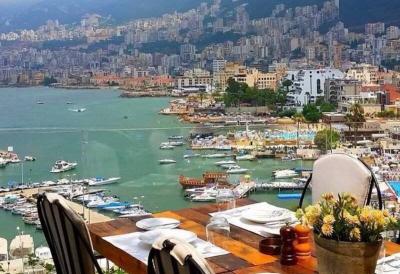The Minister of Tourism in the caretaker government, Walid Nassar, issued a circular "granting tourism establishments the right to price in dollars while payment will be made in Lebanese pounds." He noted that hard currency, i.e., dollars, will now be held by tourism establishments, which have more entitlement to it than currency exchangers. This circular may indeed preserve some rights for restaurant and hotel owners, but the question remains: has tourism and its derivatives become restricted to those who carry dollars or their equivalent in Lebanese currency? Who will monitor or restrain the potential chaos that may arise from dollar pricing as was seen during pricing in Lebanese pounds?
Al-Diyar contacted Dr. Zahir Barro, head of the Consumer Association, who confirmed that it is impossible to control price manipulation in restaurants due to the free economy in Lebanon, where they can price as they wish without legal restrictions. He argued that dollarization has only one benefit: it prevents dollars from passing exclusively through banks and exchangers, allowing restaurants, hotels, and stores to be the sole beneficiaries of this arrangement. Consequently, this may alleviate some pressure on the dollar, leading to a fully dollarized economy.
Barro emphasized that the decision taken is not subject to any oversight, making monitoring practically non-existent. He dismissed the possibility of the law being suspended in the future since everything in Lebanon that is initially temporary eventually becomes somewhat permanent, especially as the sphere of dollarization continues to expand. He stressed that dollarization has become a reality that some resort to in order to maintain a form of stability, as they do not trust the Lebanese pound and cannot hold significant amounts of it, especially in light of its ongoing collapse.
Furthermore, Barro pointed out that Lebanon exports goods worth $3 billion and imports goods worth $20 billion, with a heavy reliance on expatriates and associations that allow for the entry of dollars into Lebanon, reflecting a sick economy. He considered that an alternative solution to dollarization would involve the parliament and the government fulfilling their natural roles, particularly since the country is governed by a coalition of politicians, bankers, and large traders, who are the primary beneficiaries of this project, not the average citizen. Even if dollars are distributed among restaurants, hotels, and stores, this is a temporary, seasonal measure during the summer that will significantly decline thereafter.
In this context, Ahmad Zahra, a Lebanese citizen who receives his salary in Lebanese pounds, confirmed that the decision is very unfair and will deprive many of going to restaurants even once a month. He noted that prices are not well-studied and vary from place to place, even within the same establishment, indicating chaos and lack of organization. There are no encouraging signs that such a decision might protect against price manipulation as claimed; according to him, there is no accountability or oversight.
In conclusion, Zahra remarked that just as business owners have the right to protect themselves by pricing in dollars, Lebanese citizens have the right to receive compensation for their labor in dollars as well, since they are the primary workers and their rights should be prioritized. Otherwise, the battle is unequal, and social gaps will continue to widen, leading to various and multiple explosions.




